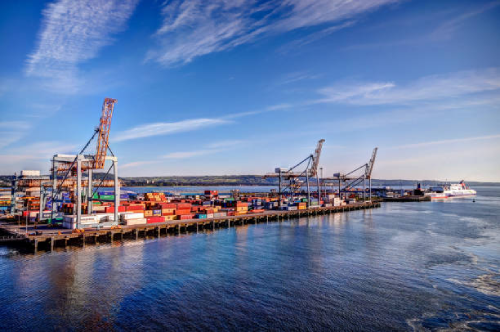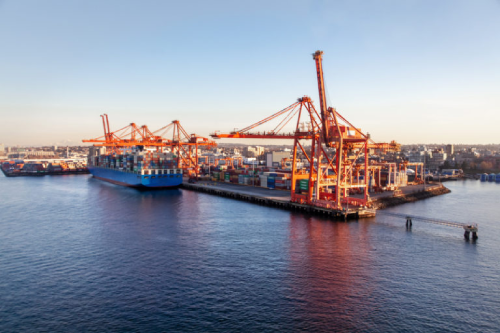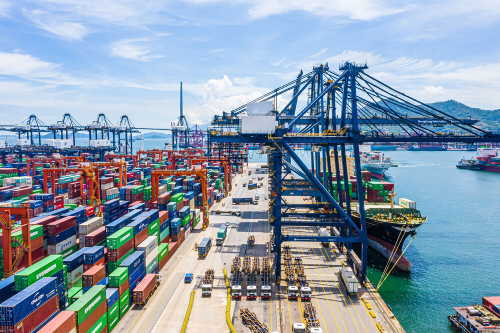Welcome to GLA! Leading the global logistics alliance.


Your location:Home > News > Global shipping container shortage is unbelievable
Time:2021-05-08 Publisher:Kevin Num:7299
Freight shipping has found itself in a unique situation where unforeseen events have left a global shortage of containers, which has had a domino effect down the supply chain, disrupting global trade.
Early last year, when the Covid-19 pandemic began to spread, many countries began implementing national lockdown and ceasing the production of goods, which ultimately pulled the plug on economic growth.
Shipping companies began reducing the number of cargo ships that were being sent out.
This not only stopped the usual flow of imported and exported goods, but also saw empty containers not being collected.
The most significant example of this can be seen in the American regions, where Asian containers could not be sent back due to Covid-19 restrictions.
As countries started to grapple with Covid-19 to recover, China – the first country to be impacted by the disease – began to recover.
Ultimately, this meant China was able to resume its import and export trade while other countries were unable to do so.

Why is the industry facing this shortage?
So where have the containers vanished to?
A significant number of containers have found themselves in inland depots while others have been stacking up at cargo ports.
As Asia slowly began to recover, other countries were still faced with national lockdown restrictions meaning containers could not be sent back to Asia to continue the trade partnership.
The pairing of lockdown regulations alongside other factors, such as a staff deficit, meant a backlog of containers began to develop.
The Covid-19 pandemic has resulted in a shift in customer spending away from services to goods due to restrictions imposed by national lockdown.
This resulted in the issue of container shortage becoming even more prominent as desirability increased, with many companies being unable to secure containers.
Asides from the impacts of Covid-19 disturbing the usual flow of trade and container availability, another major factor was the Chinese New Year.
Celebrated on 12 February, the holiday played a part more than ever this year when it comes to container shortage.
Generally, at this time of year, the industry can expect to see an increase in container tariffs and a slowdown of Chinese production due to most of the population being on holiday.
This year, the impact was greatly magnified due to the ongoing container shortage which was prominent prior to the start of this year’s celebrations.

Global industry giants thrown off balance
Many industry shipping giants, such as Maersk and Hapag-Lloyd, have been hit hard by the global container shortage, which has resulted in them adapting their methods and facing shipping setbacks.
Hapag-Lloyd has increased container refilling and emptying times to 25% faster than usual to ensure optimal container use.
Hapag-Lloyd has thought outside the box when it comes to adapting their containers for alternative uses.
Turning the reefer containers off allows dry goods such as shoes, electronics, or textiles to be sent to reefer demand locations.
Once, they can be emptied and switched back on to continue their journey.
Alongside these methods, Hapag-Lloyd has considered reusing older containers to cope with the increasing demand, as the company’s senior director of corporate communication Nils Haupt explains.

“We are desperately looking for more capacity,” he says. “We are asking our customers to return empty containers earlier.
We looked at containers that are currently in repair or ones which are meant to be sold because they have reached a certain age.
“This is something we are not doing right now [because] we would rather use those containers we have a bit longer, but it something we have looked into.”
With the situation being unprecedented and ever shifting,
Haupt stresses the importance of close industry collaboration to prevent situations like this from occurring again.
“The shipping industry is very volatile,” he adds. “We think [that] we need a closer cooperation between customers, shipping lines and port terminals so we can be better prepared for situations like this in the future.”
2019 the 7th GLA Panel Discussion Wonderful Review
Prev:New Golden Member From Kuwait—— M A Anderson Group Co. W.L.LNext:New Golden Member From Egypt—— Swift logistic solutions SLS
Recommended Membership
Latest News